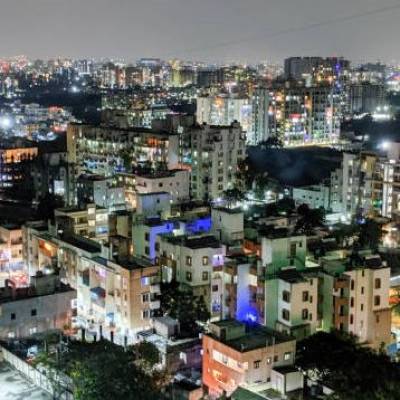

If the proposed draft development plan (DP) of Rs 73,000 crore for PMR gets accepted and executed, it could make a meaningful impact on the way its inhabitants live and work. The Pune Metropolitan Region (PMR) is getting ready for a significant upgrade.
The draft development plan the Pune Metropolitan Region Development Authority (PMRDA) has released is meant to lead the PMR development in the coming 20 years, to make it the most liveable habitat and a premium international investment destination in India. Suhas Diwase, Metropolitan commissioner and CEO, PMRDA, told the media that the draft plan intends to improve liveability and guarantee sustainable development, along with environmental resilience. Pointing at the haphazard development of the region in recent years, Diwase said that the DP calls for combined and consolidated increase, run by the five goals of prudent (economic and employment growth), efficient (infrastructure), convenient (mobility), resilient (environment) and self-sufficient (housing and amenities). According to him, the PMRDA region is presently the third-largest metropolitan area in the nation, with an area of 6,914.26 sq km. The population under PMRDA’s jurisdiction is likely to surge up to 53.70 lakh by 2041. The DP envisions developing self-sufficient towns, each with a different economic role, that complement the Pune Municipal Corporation (PMC) and the Pimpri Chinchwad Municipal Corporation (PCMC). It recommends consolidating urban development within a 5-10 km radius of PMC, PCMC limits and 5 km along the regional transport corridors. There would be 18 urban growth centres linked with each other and the regional nuclei (PMC and PCMC) via a mass transit system. Additionally, there would be eight rural development centres. The planned urban growth centres are Alandi, Chakan, Loni-Kalbhor, Malavali, Wagholi, Pirangut, Hinjavadi, Saswad, Khadakwasla, Talegaon, Khed-Rajgurunagar, Shikrapur, Uruli Kanchan, Narsapur, Khed, Ranjangaon, Yavad Kedgaon, covering 233 villages. The rural growth centres would cover Nhavaa, Kale, Kikavi, Pabal, Sangarun, Rahu, Paud and Kadus. The DP would guarantee phase-wise growth of the region. The first of the projects would be the Rs 6,124-crore PMRDA Metro link, on which a Tata-Siemens JV is ready to start work under PPP mode. An international exhibition centre would be the subsequent project. Mahalunge-Maan would be the first model town planning project of the PMRDA, being themed as a high-tech city spread across 250 acres. Land procurement for the project is in progress. The draft plan presents 59 public housing projects, 89.65-km crescent railway, 26 town planning schemes, 152.19-km Pune-Nashik semi high-speed rail, two ring roads (123 km and 173 km), 10 metro rail routes, 12 logistics hubs, and nine truck terminals, among other things. PMRDA has leveraged GIS-based technology to make the development plan. PMRDA has urged the residents to reply with recommendations and objections to the DP, about 60,000 of these had been received till September 16 though quite a few may be duplicate or common objections. While it will go for final permission of the DP as soon as this exercise is completed, land purchase, reservation and zoning of land as envisioned in the project are likely to pose challenges, especially as landowners and farmers have begun campaigning against the decision. Image Source